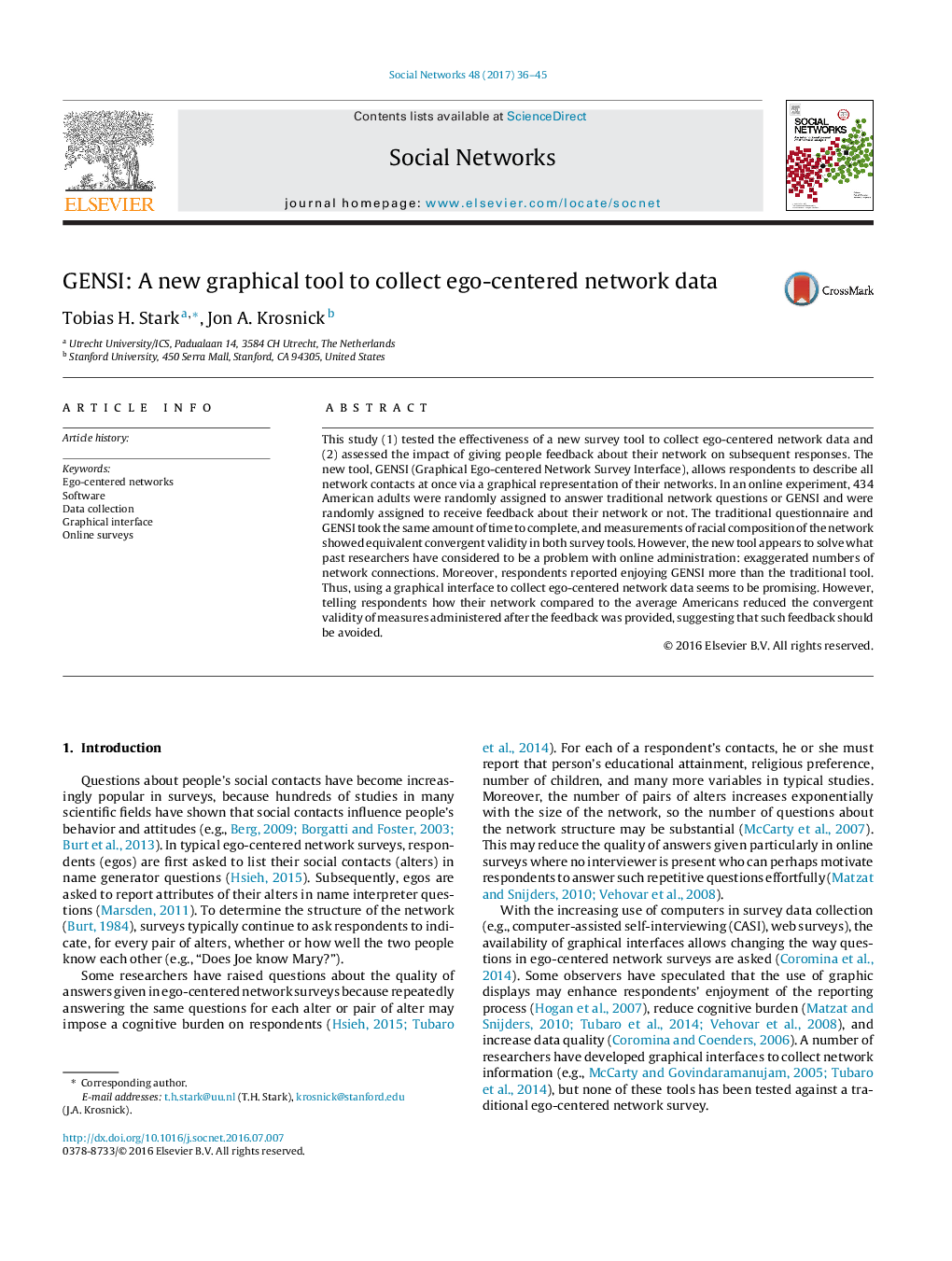| Article ID | Journal | Published Year | Pages | File Type |
|---|---|---|---|---|
| 7538374 | Social Networks | 2017 | 10 Pages |
Abstract
This study (1) tested the effectiveness of a new survey tool to collect ego-centered network data and (2) assessed the impact of giving people feedback about their network on subsequent responses. The new tool, GENSI (Graphical Ego-centered Network Survey Interface), allows respondents to describe all network contacts at once via a graphical representation of their networks. In an online experiment, 434 American adults were randomly assigned to answer traditional network questions or GENSI and were randomly assigned to receive feedback about their network or not. The traditional questionnaire and GENSI took the same amount of time to complete, and measurements of racial composition of the network showed equivalent convergent validity in both survey tools. However, the new tool appears to solve what past researchers have considered to be a problem with online administration: exaggerated numbers of network connections. Moreover, respondents reported enjoying GENSI more than the traditional tool. Thus, using a graphical interface to collect ego-centered network data seems to be promising. However, telling respondents how their network compared to the average Americans reduced the convergent validity of measures administered after the feedback was provided, suggesting that such feedback should be avoided.
Related Topics
Physical Sciences and Engineering
Mathematics
Statistics and Probability
Authors
Tobias H. Stark, Jon A. Krosnick,
